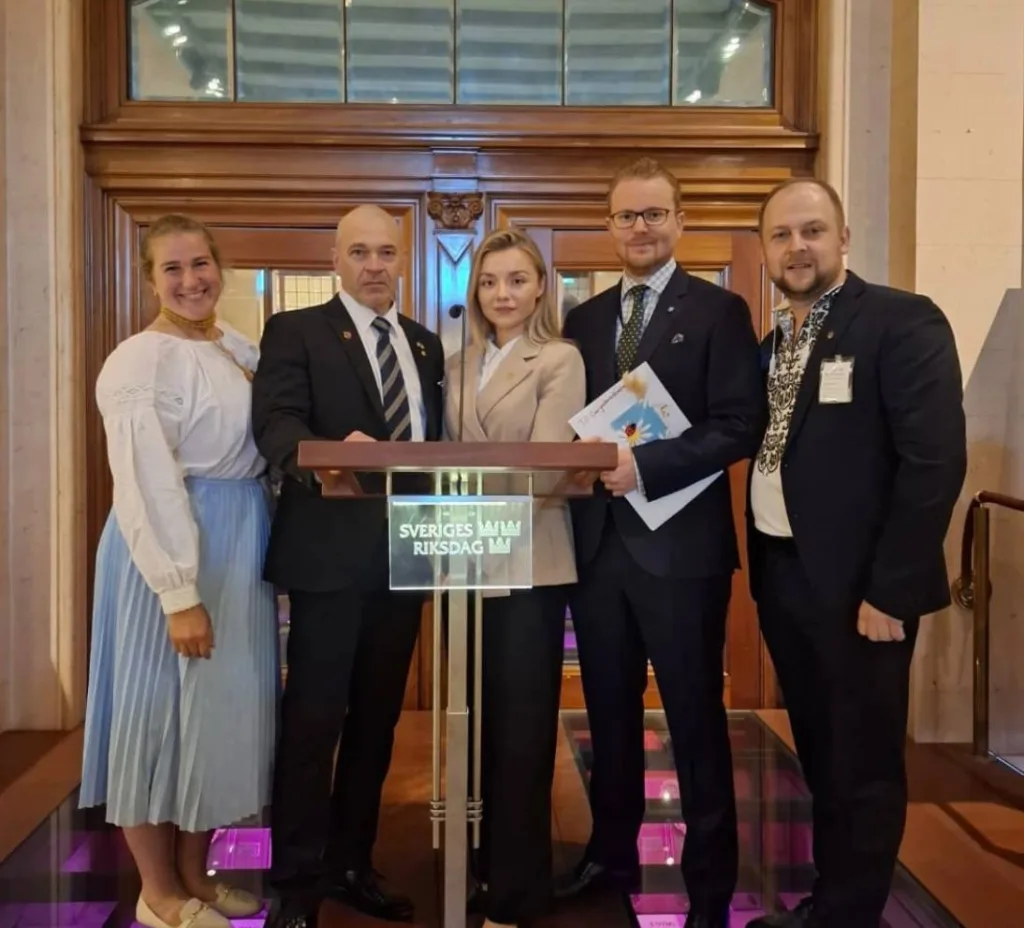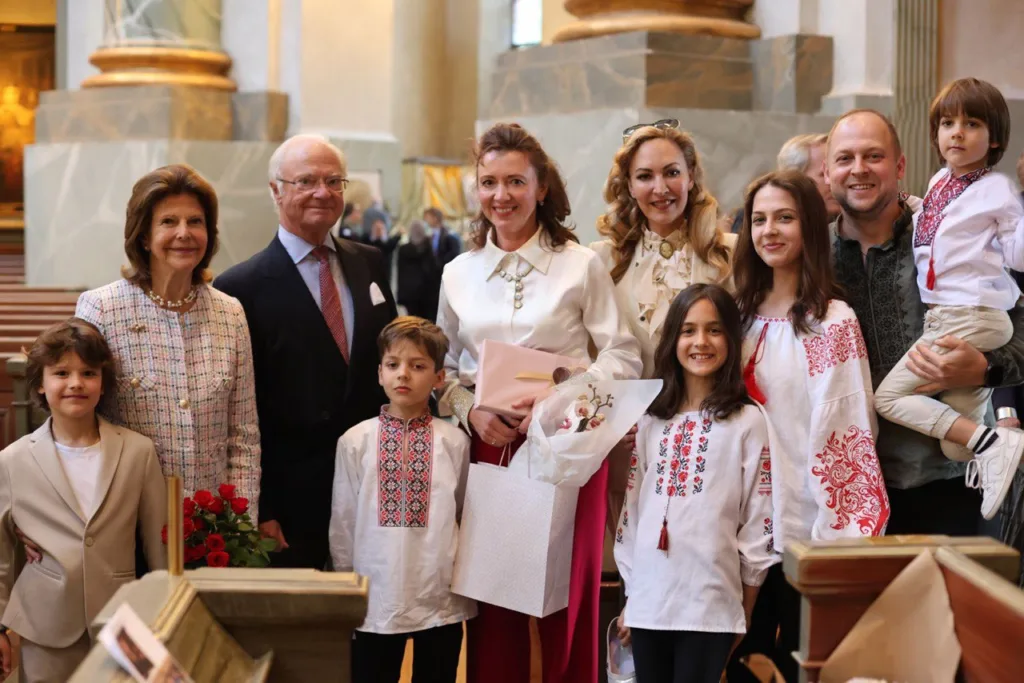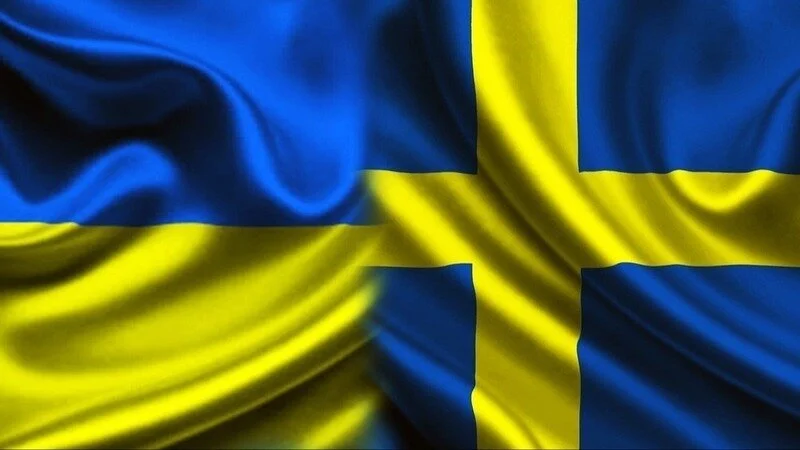More than three million people – according to official figures, this is the number of Ukrainians who left for other countries after the full-scale invasion and are still there. Recently, the European Commission proposed to extend temporary protection for Ukrainian refugees in the EU until 4 March 2027. However, can Ukrainians claim a more stable legal status? Sweden is one of the countries where more than 40,000 Ukrainians have found refuge. In May, more than 11,000 of them asked the Swedish government to allow them to stay in the country on a permanent basis. We asked the initiator of the petition, public figure and volunteer Artem Polyakov what exactly they asked for and what results they have achieved.
Read also: The EU is reducing temporary protection for Ukrainians by more than 30% in 2025
— Artem, what is the purpose of the petition of Ukrainians to the Swedish government?
— We filed the petition because we want clarity on the status of Ukrainians in Sweden. Currently, we do not have a clear understanding of our future after the Temporary Protection Directive expires. People work, integrate, pay taxes, their children go to school, but the lives of Ukrainians are still based on temporary status. And this is psychologically stressful. In addition, many people have lost their homes in Ukraine and simply have no place to return to.
We hope that the petition will prompt the Swedish authorities to start an open dialogue on the long-term prospects of Ukrainians. In addition, we ask that discriminatory restrictions on rights and access to services be removed and that the level of integration of those who have already become part of Swedish society be taken into account.
These requests are fully in line with the recommendations of the European Council, which in 2025 extended the Directive for another year and called on EU member states to create legalisation mechanisms for Ukrainians who have integrated. This is exactly what we are asking Sweden to do.

— What kind of discriminatory differences in rights do you mean?
— One of the problems is the lack of a personal number (personnummer), which in Sweden is the key to normal life. Instead, Ukrainians were provided with a coordination number (samordningsnummer), which greatly limited access to services. Last year we finally got access to a personal number, and it was a great victory. But there are internal inequalities between Ukrainians themselves, depending on when they arrived. For example, those who have lived in Sweden for more than two years have received the long-awaited personal number, which has opened the door to many services and opportunities. Those who have lived for a year have a different personal number and conditions with less access to public services.
And newly arrived Ukrainians cannot get a personal number at all during the first year. This severely limits their rights and access to social programmes. This system creates discrimination at the level of basic rights, divides Ukrainians into three categories and slows down real integration.
— Has the Swedish government responded to the petition so far? And if not, what kind of response do you expect?
— So far, there has been no official response. However, on 17 June, we personally handed the petition to all parliamentary parties in the Riksdag and handed it over to the Cabinet Office. We expect a clear position of the government on our future and a space for public discussion with the participation of the Ukrainian community.

— How loyal are the Swedish government and people to Ukrainians in general?
— Swedes are very sincere towards Ukrainians. Since the first days of the war, we have felt tremendous support – many Swedes have opened their homes and municipalities have been actively involved in helping. But it is important to understand that Sweden has been pursuing a stricter migration policy in recent years. The large number of refugees from Syria, Afghanistan, and African countries has created challenges, such as the growth of parallel communities and even criminal networks. As a result, political rhetoric on migration has become much more restrained.
— What are your next steps?
— We will be participating in Almedalen Week, the largest political week in Sweden, which takes place on the island of Gotland. There, we plan to meet with representatives of political parties, NGOs and journalists to discuss the future of Ukrainians after the Directive expires.
Our task is to make the Ukrainian voice visible and heard in the highest political circles. We already have the support of various politicians and public figures in Sweden and we will expand this circle of friends. Now is the chance to create a powerful Ukrainian diaspora that will strengthen both Ukraine and Sweden. To add your voice to the petition, please follow the link. We will be very grateful for your support of our initiative.
Read also: The EU may increase entry fees for tourists from Ukraine in 2026



